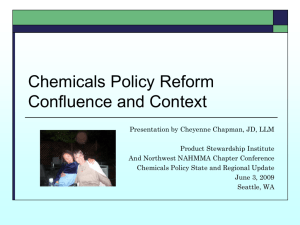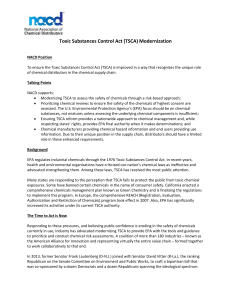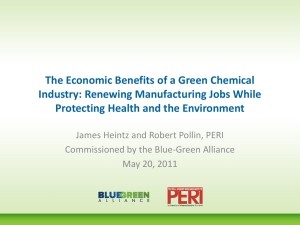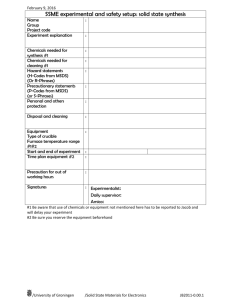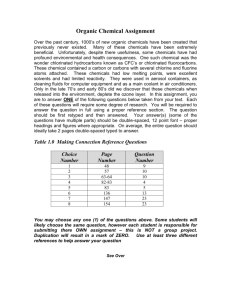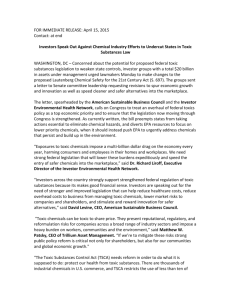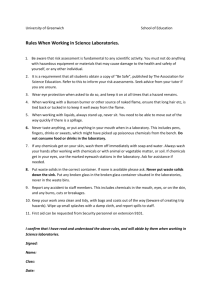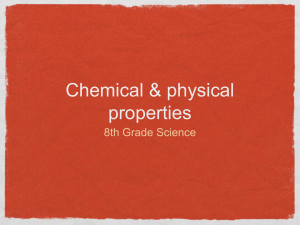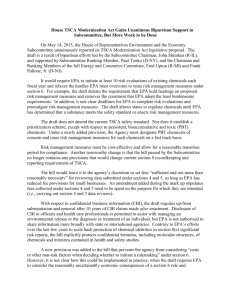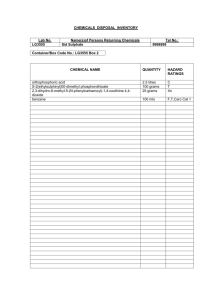Letter to Senate Leaders (TSCA)
advertisement
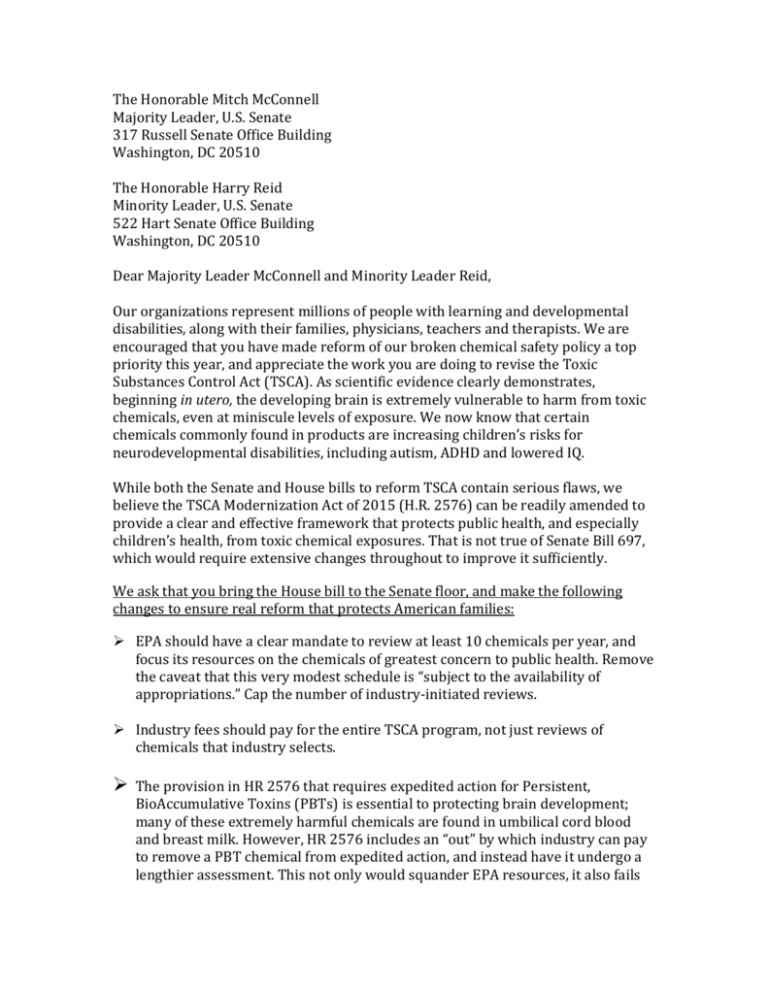
The Honorable Mitch McConnell Majority Leader, U.S. Senate 317 Russell Senate Office Building Washington, DC 20510 The Honorable Harry Reid Minority Leader, U.S. Senate 522 Hart Senate Office Building Washington, DC 20510 Dear Majority Leader McConnell and Minority Leader Reid, Our organizations represent millions of people with learning and developmental disabilities, along with their families, physicians, teachers and therapists. We are encouraged that you have made reform of our broken chemical safety policy a top priority this year, and appreciate the work you are doing to revise the Toxic Substances Control Act (TSCA). As scientific evidence clearly demonstrates, beginning in utero, the developing brain is extremely vulnerable to harm from toxic chemicals, even at miniscule levels of exposure. We now know that certain chemicals commonly found in products are increasing children’s risks for neurodevelopmental disabilities, including autism, ADHD and lowered IQ. While both the Senate and House bills to reform TSCA contain serious flaws, we believe the TSCA Modernization Act of 2015 (H.R. 2576) can be readily amended to provide a clear and effective framework that protects public health, and especially children’s health, from toxic chemical exposures. That is not true of Senate Bill 697, which would require extensive changes throughout to improve it sufficiently. We ask that you bring the House bill to the Senate floor, and make the following changes to ensure real reform that protects American families: EPA should have a clear mandate to review at least 10 chemicals per year, and focus its resources on the chemicals of greatest concern to public health. Remove the caveat that this very modest schedule is “subject to the availability of appropriations.” Cap the number of industry-initiated reviews. Industry fees should pay for the entire TSCA program, not just reviews of chemicals that industry selects. The provision in HR 2576 that requires expedited action for Persistent, BioAccumulative Toxins (PBTs) is essential to protecting brain development; many of these extremely harmful chemicals are found in umbilical cord blood and breast milk. However, HR 2576 includes an “out” by which industry can pay to remove a PBT chemical from expedited action, and instead have it undergo a lengthier assessment. This not only would squander EPA resources, it also fails to protect vulnerable populations from the worst chemicals. The option to pay to get a chemical off the PBT list should be deleted from the bill. Clearly establish that EPA will regulate chemicals based solely on protecting public health, rather than doing what is “cost-effective” for industry. With these essential changes, HR 2576 will provide a meaningful approach to assessing chemical safety and addressing toxic chemicals. On the other hand, S. 697 would require EPA to wade through new layers of onerous, bureaucratic process before getting this critical work underway; S. 697 would establish a low priority category that gives thousands of chemicals a “pass” without adequately assessing their safety, putting the public at continued risk of harm; and S. 697 would block the states from taking action on a toxic chemical for years while waiting for the federal government to determine next steps. Our learning and developmental disabilities organizations are keenly aware of the importance of this debate and what kind of TSCA reform emerges from it. We ask that you use your leadership to bring the House bill, with the critical changes outlined above, to the Senate floor this fall. We believe this is the best path to real reform that protects our families and future generations from toxic chemicals that contribute to serious disease and disability. Thank you,
